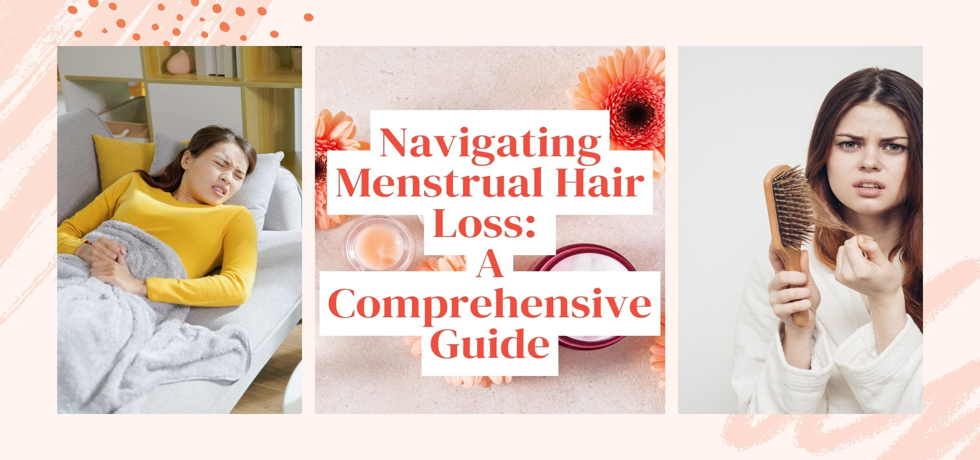
Navigating Menstrual Hair Loss: The Ultimate Guide
Understanding Hair Loss During Menstruation
The Role of Hormones
Hormonal fluctuations during the menstrual cycle have a significant impact on hair health. Estrogen, progesterone, and androgens play essential roles in the hair growth cycle, and imbalances can lead to hair loss. During menstruation, estrogen levels drop, which may contribute to increased shedding and thinning.
Identifying Signs of Menstrual Hair Loss
Recognizing the early signs of hair loss is crucial. Look for indicators such as increased hair shedding, thinning areas, changes in hair texture, and sensitivity of the scalp. While some degree of hair loss is normal, significant changes that persist beyond your menstrual cycle warrant a consultation with a dermatologist or hair specialist.
Healthy Lifestyle Practices
Adopting healthy lifestyle practices is integral to managing menstrual hair loss. A well-balanced diet rich in essential nutrients, such as vitamins, minerals, and proteins, supports hair growth and overall health. Foods high in omega-3 fatty acids and antioxidants can enhance scalp health, combat inflammation, and promote stronger hair.
Effective Stress Management Techniques
Stress can exacerbate hair loss, making it vital to incorporate stress management techniques into your daily routine. Practices like yoga, mindfulness meditation, and deep breathing exercises can significantly reduce the stress impact on hair health, supporting a more balanced routine during your menstrual cycle.
Scalp Care and Natural Remedies
Maintaining a healthy scalp is key to nurturing your hair. Gentle hair care products, along with natural remedies such as essential oil massages and herbal treatments, can stimulate hair follicles and enhance hair growth. Employ essential oils like rosemary and peppermint, known for their scalp benefits, to improve circulation and promote healthy hair.
When to Seek Professional Help
If you experience severe hair loss or other concerning symptoms during your menstrual cycle, its essential to consult a healthcare provider or dermatologist. They can offer specialized advice tailored to your individual needs and may recommend hormone treatments or assessments to determine any underlying issues contributing to menstrual hair loss.
Conclusion: Your Path to Healthy Hair
Navigating menstrual hair loss is a journey that involves understanding your body and employing effective strategies. By focusing on healthy lifestyle choices, stress management, and appropriate hair care routines, you can mitigate the impact of hormonal changes on your hair. Remember, awareness and proactive measures can empower you towards healthier hair.
FAQ
How common is menstrual hair loss?
It’s not uncommon for women to experience hair loss related to hormonal fluctuations during their menstrual cycle.
Can dietary changes affect hair growth during menstruation?
Yes, a nutritious diet can positively impact hair health and combat the effects of hormonal changes. A balanced intake of vitamins and minerals supports strong hair growth.
What are effective natural treatments for hair health?
Natural treatments can include essential oil massages and regular use of hydrating conditioners to maintain scalp health and reduce hair loss.

